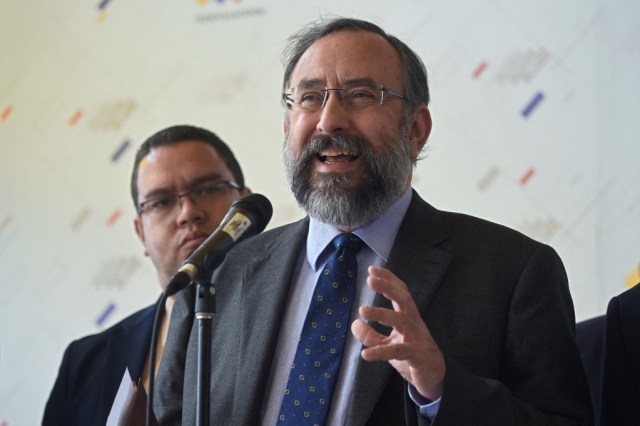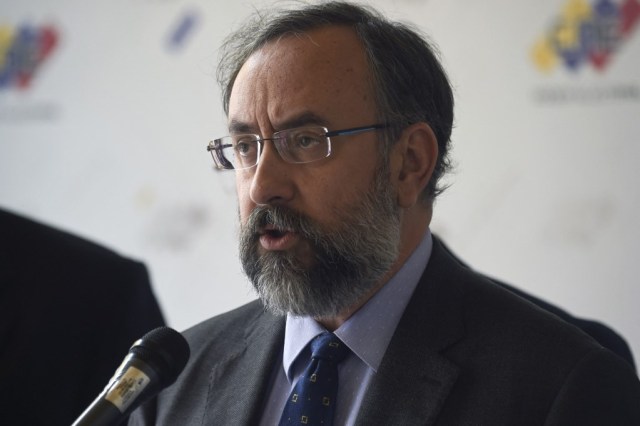
Given the distrust of the people in the National Electoral Council and the supposed fracture of the opposition, the initiative of the primary election arose from “the ashes”. This stands as an opportunity for citizens to democratically choose a representative who would go face to face against the Chavista regime that seeks to perpetuate itself in power in the eyes of the world.
Lucho Suárez // lapatilla.1eye.us
The democratic alternative promoted by political leaders to defeat the Chavista dictatorship has always been the popular vote, there was never any other tool. But to achieve victory at the polls, a candidate supported by the citizens is needed, a candidate that comes from this primary election that will take place on October 22nd of this year.
However, the road to the first electoral appointment prior to the presidential elections, scheduled by Nicolás Maduro’s regime for the year 2024, has been ups and downs for the opposition leadership, which has had to row against the current to win back the trust of a people in need of solutions, who fear another disappointment and who do not want to postpone “for later” the change that the country needs to get out of the hole in which the Chavista leadership has put it for more than 20 years.
To reach that point, the first great challenge of the Democratic Unitary Platform was the creation of an impartial entity, with the responsibility of generating confidence in the electorate and that will responsibly ensure the rights to free and transparent voting.
From there, in November 2022, the National Primary Commission was born, led by Jesús María Casal, a Venezuelan lawyer and professor, specialist in Constitutional Law.
Casal, 57, spoke with lapatilla.1eye.us about the work of the National Commission for Primary Education. He cleared several doubts about the process, such as the possibilities of participation of Venezuelans abroad, the situation of the candidates disqualified by Chavismo and the integration of young people into the electoral registry as a vital tool to defend the democratic and constitutional rights of Venezuelans.
Question (Q): How could the primaries influence the long-awaited unity of the opponents, when we know that they are strongly fragmented and whose discrepancies seem not to be resolved, but rather are deepening?
Answer (A): There are those who think that the primaries in and by themselves are an expression of the fragmentation of the opposition. However, other aspects related to this matter must be considered.
On the one hand, let us remember that there is a certain tradition in the organization of primaries to elect opposition candidates. They were used in 2010, 2012, 2015, partially in 2017. So, if we take this into account and, above all, the importance of the 2012 primaries, one concludes that in their origin, the primaries arose at a moment of strength of the opposition unity, of a fairly cohesive opposition, as it was in those years of the Democratic Unity Table.
The current context is different. Obviously there is less articulation between the opposition forces, but the primaries can serve to build a broader, more diverse unity (coalition) and can reunite the opposition forces, as long as the spirit that the National Primary Commission wants to give this process is respected as a process where there is a climate of respect between the parties, a process in which the programmatic elements have a relevant weight, where a real offer is made to the country to form a democratic society for the construction of the future of Venezuela .
In other words, the emphasis should not be so much on individuals and their ambitions, but on the great project of the country and on the sum of everyone’s efforts to improve living conditions and recover democratic institutions in Venezuela.

Q- What will the Primary Commission do to encourage the participation of people who have shown weariness against the opposition?
R- A key issue is precisely that. Still we see that since the date and schedule of the primary was announced, there is a great willingness to participate. There is a certain reconciliation of the citizens with the voting route. The vote in this phase of the primary as a citizen process, but that is preparing us for the presidential electoral contest of 2024.
We think that to promote this participation it is very important to create confidence in the work of the National Commission for Primary Education. So far, the signals we have received indicate that this trust exists, since we act with absolute independence and always trying to respect the participation rights of Venezuelans.
I think the essential thing here is to motivate citizens with the primary process. They will find here an opportunity to recover the illusion of the possibility of a promising future for Venezuela. And I believe that this is one of our great purposes as the National Commission for Primary Education: to sow hope in the country that had been cut short by so many factors for various reasons. Sow hope again and make this journey from here until October 22nd to reap all these efforts at that time.
We are making a great effort to work with young university students, young people in general, and create youth support committees for the primary, to motivate them to enroll in the electoral registry, to keep in mind their electoral citizenship as a valuable acquisition in democracy and for democratization.
Q- What will be the logistics so that Venezuelans abroad can vote in the primaries?
R- This logistics is an issue that is still being worked on, it is being defined. There are many organizational and financial aspects to evaluate, and especially electoral guarantees for all parties and citizen participation. We are considering all these elements for the purposes of logistics.
We maintain contacts with Venezuelans all over the world. The associations of Venezuelans abroad, the committees that have been formed in the cities with the highest concentration of Venezuelans. We already had a meeting in Bogotá on December 13th with associations of Venezuelans in Colombia, and we have tried to maintain some in other countries. Our experts in the field are also in permanent contact with those organizations of Venezuelans abroad, and by joining efforts we believe that this will be carried out successfully.
But I repeat: the precise terms and scope of that process has not been defined yet, we are working hard on that to be able to announce it.

Q- What can the Primary Commission do with respect to the candidates who are disqualified, in case one of them wins the (primary) election?
A- We have repeatedly maintained that the people affected by some disqualification from the Office of the Comptroller General of the Republic, can participate in the primary as a citizen process of exercise of rights. It will be up to the voters to make the corresponding assessments at the time of issuing their vote.
If a candidate who has been the victim of disqualifications, which we consider unconstitutional, wins, then we will nevertheless proclaim the winner, and what happens from that moment on must be handled at other instances, although we will exercise our good offices. We are already urging that the disqualifications for the primary candidates be annulled so that they can all attend under equal conditions.
Q- What will be the strategy that you will apply to overcome the iron censorship of Maduro’s government, which prevents Venezuelans from being informed about the primaries?
R- We are using all the spaces that we have within our reach in the media to carry the message of the primary, of participation, of the recovery of the full exercise of citizenship in this phase of the citizen process, and we will continue to do so. Also, when we establish the regional boards, there will be a greater presence within the primary process, and we ourselves will make some trips to the interior (of the country) and we will organize various activities to motivate the citizens.

